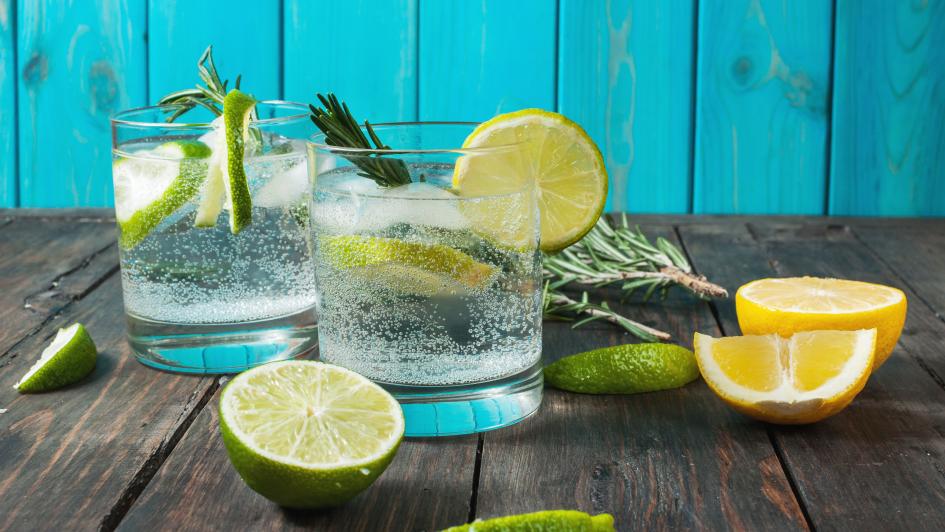Breaking Down the Bubbly - Sparkling Water

Published
A quick online search for carbonated water can bring up numerous health claims – low bone mineral density, tooth decay, and – most alarmingly – weight gain. A small 2017 study published in Obesity Research and Clinical Practice has led many to believe that carbonated beverages, sparkling water included, promotes production of ghrelin (the “hunger hormone”) and can lead to weight gain.1 These findings, however, were based primarily in rat studies focusing on soft drinks containing both sugar and carbonation and do not clearly make a connection between carbonation and weight gain in humans. Between headlines, health claims, and endless options on the shelves, how do we select the best fizzy refresher for our health?
Though seemingly innocent, waters can contain additives that may have adverse health impacts. Some features to looks for are:
- Sweeteners – some flavored products contain as many as 35 grams of sugar, which is the equivalent of 7 teaspoons. Waters flavored and sweetened with sugar may lead to weight gain due to excess calorie consumption.
- Bisphenol-A (BPA) – many canned products, including La Croix and other beverages, contain BPA. Research suggests that BPA exposure may be linked to hormone dysregulation, altered fetal development, and poor gut health.2 Though currently regarded safe in small amounts by the FDA, research continues to be reviewed. If you are concerned about exposure, sparkling water available in glass bottles may be the best choice.
- Flavorings – natural flavoring is an often used yet ambiguous term. Beloved brands such as La Croix utilize essence oils extracted from fruit to provide flavor without sweeteners or calories.3 For an easy way to boost flavor, try making your own “fun water” by infusing fruit, herbs, or cucumber in water before carbonating.
At its purest form, sparkling water is made by simply adding air to water, providing many with an appealing opportunity to increase daily water intake. Though the carbon dioxide responsible for making sparkling water sparkle may lead to bloating, gas, and discomfort in those with IBS,4 anyone not sensitive to carbonation can feel comfortable selecting sparkling water as a hydration alternative.
Hydration is just one aspect of a balanced diet – talking with a Registered Dietitian can help you figure out the rest. For personalized nutrition recommendations, make an appointment with a Bastyr Center for Natural Health provider by calling (206) 834-4100.
By Alyssa Siegel, MS, Dietetic Intern at Bastyr University. Schedule an appointment at our Seattle or San Diego clinics today!
Resources:
- Eweis DS, Abed F, Stiban J. Carbon dioxide in carbonated beverages induces ghrelin release and increased food consumption in male rats: Implications on the onset of obesity. Obesity Research and Clinical Practice. 2016.
- Bauer BA. What is BPA, and what are the concerns about BPA? Mayo Clinic. https://www.mayoclinic.org/healthy-lifestyle/nutrition-and-healthy-eating/expert-answers/bpa/faq-20058331. Published 2016. Accessed November 27, 2017.
- http://www.lacroixwater.com/nutritional-faqs/
- Ligaarden SC, Lydersen S, Farup PG. Diet in subjects with irritable bowel syndrome: A cross-sectional study in the general population. BMC Gastroenterology. 2012;12:61. doi:10.1186/1471-230X-12-61.

